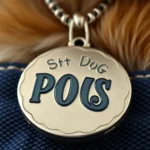
Dental health is a crucial aspect of a small dog’s overall well-being. As small breeds are prone to various dental issues, maintaining their oral hygiene is essential. One of the most enjoyable and beneficial ways to promote dental health is through chewing. Chewing bones can effectively clean a dog’s teeth, reduce plaque buildup, and provide mental stimulation. In this article, we will explore the best bones for small dogs, helping you select the most suitable options for your furry friend.
Understanding Small Dogs’ Chewing Needs
Anatomy of Small Dog Teeth
Small dogs typically have smaller teeth, which can lead to specific dental challenges. Their dental structure is designed for a diet that includes softer foods, but this doesn’t mean they don’t need to chew. Small breeds often face dental issues like gum disease, tartar buildup, and tooth decay. Regular chewing can help to mitigate these problems, providing a natural way to keep their teeth clean and healthy.
Behavioral Aspects
Chewing is a natural behavior for dogs, and small breeds are no exception. Many small dogs develop a habit of chewing on various objects, from toys to furniture. Providing safe chewing options, such as bones, not only satisfies their instinctual needs but also helps keep their teeth clean and gums healthy. It’s essential to offer appropriate chewing materials that can withstand their enthusiastic gnawing.
Types of Bones for Small Dogs
Natural Bones
Natural bones are a popular choice among dog owners. They come in various forms, including:
- Marrow Bones: These are filled with nutritious marrow and are great for stimulating chewing.
- Femur Bones: Larger bones that can be challenging but rewarding for small dogs.
Pros: They offer natural flavors and nutrients, promoting dental health and satisfying a dog’s chewing instinct.
Cons: Natural bones can splinter, posing choking hazards and potential digestive issues if ingested.
Synthetic Bones
Synthetic bones are designed to be durable and safe for dogs. Common materials include:
- Nylon: Tough and long-lasting, ideal for aggressive chewers.
- Rubber: Flexible and often infused with flavors, making them appealing to dogs.
Pros: Synthetic bones are less likely to splinter and often come in various flavors.
Cons: Some dogs may lose interest quickly, and not all synthetic bones are made with non-toxic materials, necessitating careful selection.
Edible Bones
Edible bones, like rawhide and dental chews, are designed to be chewed and digested. They come with added flavors that dogs typically enjoy.
Pros: They provide nutritional benefits and can help clean teeth while being safe for consumption.
Cons: Some edible bones can lead to digestive issues if not monitored and can also pose choking risks.
Features to Look for in Bones for Small Dogs
Size Appropriateness
Choosing the right size bone for small breeds is crucial. A bone that is too large can be hard for a small dog to handle, while one that is too small can pose a choking hazard. Ideally, the bone should be about the size of your dog’s mouth, allowing them to chew comfortably.
Safety Factors
Safety should always come first when selecting bones for small dogs. Look for bones made from non-toxic materials and ensure that they do not splinter easily. Regularly inspect the bones for wear and tear, taking them away if they show signs of breaking down.
Durability
For aggressive chewers, durability is essential. Bones that last longer will save you money and provide your dog with an extended chewing experience. Look for products that have undergone durability testing or come with a satisfaction guarantee.
Recommended Bones for Small Dogs
Top Natural Bone Brands
Some of the best natural bones for small dogs include:
- Pet ‘n Shape Chicken Bone: A popular choice, these bones are made from real chicken and are easy to chew.
- Nature’s Logic Bone Broth: A nutritious option that provides added flavor and hydration.
Best Synthetic Bone Options
When considering synthetic bones, here are some top contenders:
- Nylabone DuraChew: Designed for powerful chewers, these bones are made from durable nylon and come in various flavors.
- KONG Classic Dog Toy: While not a bone in the traditional sense, this rubber toy can be stuffed with treats, making it a fun and durable option.
Recommended Edible Bone Products
For edible bones, consider these safe options:
- Greenies Dental Chews: These dental chews are designed to reduce plaque and tartar while freshening breath.
- Barkworthies Rawhide Alternative: A digestible and safe alternative to traditional rawhide, these chews are made from natural ingredients.
How to Introduce Bones to Small Dogs
Gradual Introduction
Introducing bones to your small dog should be done gradually. Start by offering a bone for short periods, monitoring their chewing habits. Observe your dog for any signs of discomfort or digestive issues, and adjust the introduction as needed.
Supervision Guidelines
Always supervise your dog while they chew. This is especially important for new bones. Look out for signs that a bone should be taken away, such as excessive wear, splintering, or if your dog seems to be struggling with it.
Caring for Your Dog’s Dental Health
Regular Dental Checkups
Routine veterinary dental checkups are vital for maintaining your small dog’s dental health. During these visits, the vet will check for any signs of dental diseases, tartar buildup, or other oral issues. Regular exams help catch problems early, ensuring your dog’s teeth and gums remain healthy.
Complementary Dental Care
In addition to providing bones, consider using complementary dental care products. Dog-friendly toothpaste and dental wipes can help maintain oral hygiene. Encourage at-home dental care by introducing regular brushing sessions, which can significantly contribute to your dog’s overall dental health.
Conclusion
In summary, choosing the best bones for small dogs involves understanding their unique chewing needs and selecting the right types of bones. Whether you opt for natural, synthetic, or edible bones, safety, size, and durability should always guide your choices. Regular dental checkups and complementary care will further enhance your small dog’s dental health. By considering your dog’s preferences and health needs, you can select the perfect bones that will keep their teeth clean and their tails wagging.
Remember, each dog is unique, and finding the right chewing options may take some experimentation. Keep an eye on their chewing habits and preferences, and enjoy the process of keeping them healthy and happy!









